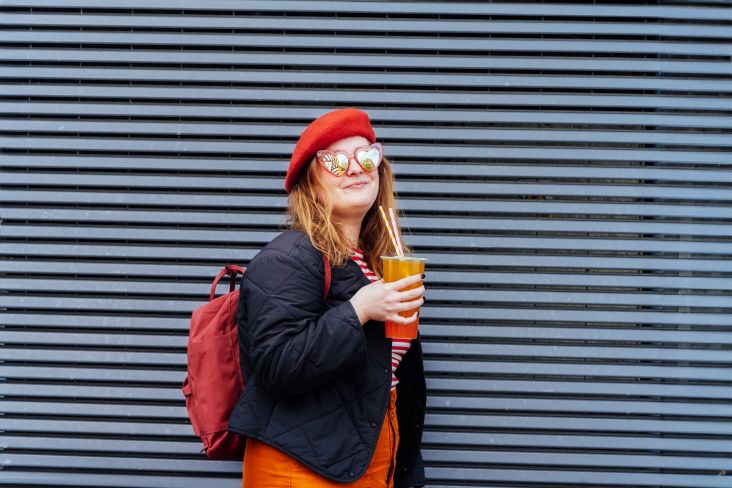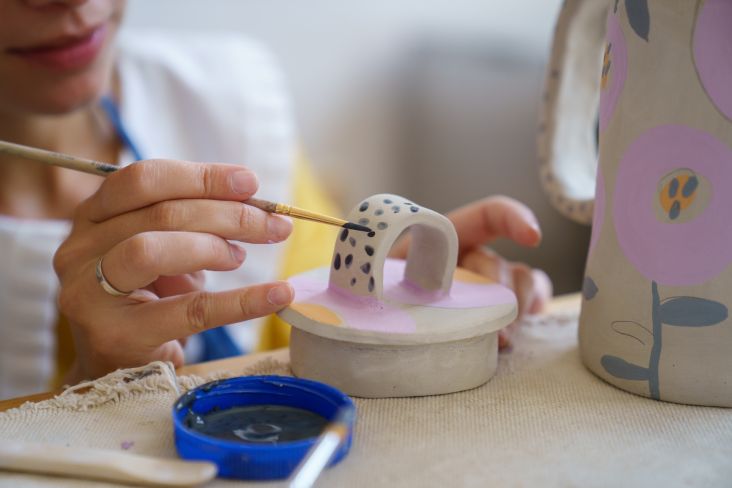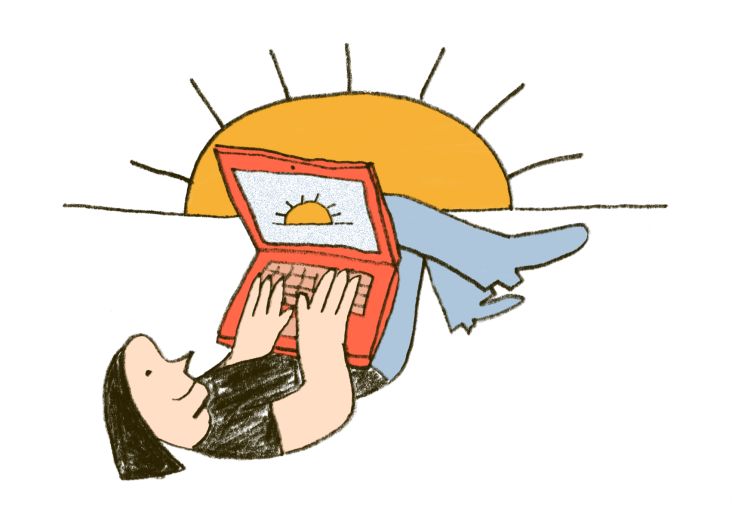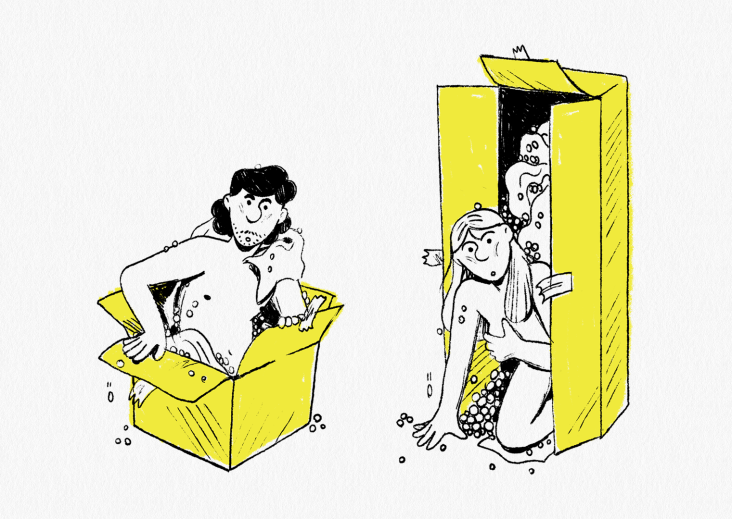Managing mental health in 2024: freelancers share their strategies in turbulent times
Working as a creative freelancer can be stressful right now. We asked the creative community for tips on overcoming it.

Image licensed via Adobe Stock
We love freelancing. It can be incredibly rewarding, offering autonomy, flexibility and the ability to pursue your passions. But no one can deny it also comes with its own set of challenges: financial instability, unpredictable workloads and the solitary nature of the work itself. And in 2024, as AI, algorithm changes, and economic turmoil continue to disrupt everything around us, many freelancers are feeling that stress more than ever before.
In this constantly evolving landscape, maintaining one's mental health can be an uphill battle. The stress of erratic income, looming deadlines and the relentless hustle for new work can take a heavy toll. Without traditional workplace support structures, it's all too easy for freelancers to become overwhelmed, burnt out and disconnected.
Here at Creative Boom, though, we're not about wallowing in misery but in finding practical solutions. So, to help those of you who are struggling and guard against the rest of you struggling in the future, we reached out to freelance creatives across disciplines to learn how they are coping with today's unique mental health challenges.
Their candid insights offer valuable perspectives and practical strategies for nurturing well-being amid this current environment of uncertainty. We share the best of them below, while you can read the full discussion on X and Threads.
Healthy habits
One of the most consistent themes was the critical role of self-care. For many, this means prioritising physical activity as a potent antidote to stress.
"Exercise as often as possible," advises illustrator Sam Rodriguez while designer Lizzy Doe says: "My number one tip is to get out in nature," and painter Amy Lou, adds: "I swim as much as possible; to relax and focus on one step at a time towards my goals."
Activity is well known as a way of dealing with stress because it distracts you from your problems and physically releases endorphins that boost mood and reduce stress levels. And you don't necessarily have to run a marathon or join a gym. Even simple exercises like walking, jogging, or yoga can be beneficial.
Don't fancy exercising? There are many other ways to deal with stress. One is to practise relaxation techniques, which can help calm the mind and reduce tension in the body. For example, taking slow, deep breaths from the diaphragm can help activate the body's relaxation response. Try breathing in through the nose for four counts, holding for four counts, and exhaling through the mouth for six counts. This can put you in a better state of mind and help boost your sleep (you should aim for seven to nine hours of quality sleep each night).
Another tried and tested way to beat stress is to engage in hobbies you enjoy, such as reading, gardening or playing music. Simple things like taking a warm bath or getting a massage can also make a huge difference, as long as you give yourself permission to take time off from work and worry. Indeed, that's often the thing that's most de-stressing, rather than the activity itself.
Whichever way you deal with stress, the important thing is to get into healthy habits now rather than wait until it takes over your life. "Take breaks BEFORE you burn out," says graphic designer Emma Rodriguez. "When you start to recognise signs of being overwhelmed or exhausted, just take a day to recharge and do the things you enjoy."
Mindset matters
Whatever method you use to deal with stress – whether it be meditating, exercising, journaling, or watching cat videos on YouTube – will only take you so far if you don't adjust your mindset. And that means, well, learning to worry less.
"There will always be something to worry about," reflects visual artist Bram Vanhaeren. "Focus on what you have in control: good health, family, and doing good for others."
"Remember that the work you're doing isn't life or death," adds Emma Rodriguez. And she should know. "I work part-time in health care, so I have seen life and death," she explains. "It's a constant reminder that 'urgent' definitely does not mean the same thing in the creative industry as it does in other lines of work."
"Eventually we die and time is short," echoes Ryan Annett, a self-taught visually impaired artist. "So recently, I've been taking longer than normal social media breaks. Less doom scrolling and more just trying to enjoy life."
Maintaining perspective and avoiding catastrophic thinking can be powerful buffers against anxiety and despair. This sentiment is echoed by author, poet and teaching artist Oyamo Richard when he says: "Just like others before, this phase shall eventually pass too."
Be mindful
For some, regular, structured techniques provide an anchor. "Daily journalling and a 15-minute guided meditation help me start my day with a clear and focused mind," says Samyuktha Krishna. "This sets a calmer precedent for the rest of the day, and I try to do easier, smaller tasks first that get the ball rolling. On days when things don't go as planned, and if there are no deadlines, I make an effort to remind myself that it's okay to take a break or to fail now and then. As long as I learn something from it, I can do it differently next time." (For more on that, read How to embrace failure and turn it into a creative superpower).
That said, many of us find mindfulness in our work itself, especially when setting aside time for personal projects. "When I've had quieter weeks, I love joining art challenges such as JEHANE's 'Golden Thread' on Instagram," says Lizzie Doe. "It gives me tons of inspiration and a great community vibe."
Finding balance
When you find yourself in the right mindset, the solutions to problems like lack of freelance work no longer feel overwhelming, and you can start to make positive steps to solve them. Art director Michael Miller, for example, says: "I'm using this time to make hard pivots, learn how to develop a proper studio practice and embrace the physical and digital community of industry mentors."
But you don't necessarily have to change your entire approach to make a difference. Indeed, in the face of intense workload swings, many are reframing how they approach their professional lives and measure success. For marketer Stu Goulden, the path to reduced stress involves "being a 'calm' company of one with a few income streams, interesting projects and like-minded clients". He's now seeking to pursue purpose-driven, sustainable growth: "better to keep tiny overheads and total freedom", he notes.
This sentiment of prioritising balance and fulfilment over blind ambition is echoed by creative copywriter Patrisha Robertson, who's lately been putting the focus on: "Walks, gardening, studio cleaning, learning, and reconsidering what's important in work and life."
Of course, none of this is easy, and as illustrator Florence Sabatier says, it's tough to survive these kinds of pressures alone. "It's really difficult, and some days I'm afraid about the future," she says. "I keep reminding myself that things aren't written in stone to be a bit less fatalistic. But in these times, as well as talking about it with other people, it's important to get help in terms of mental health. So you don't have to face alone a situation that can be hard to manage when you're not in control."























